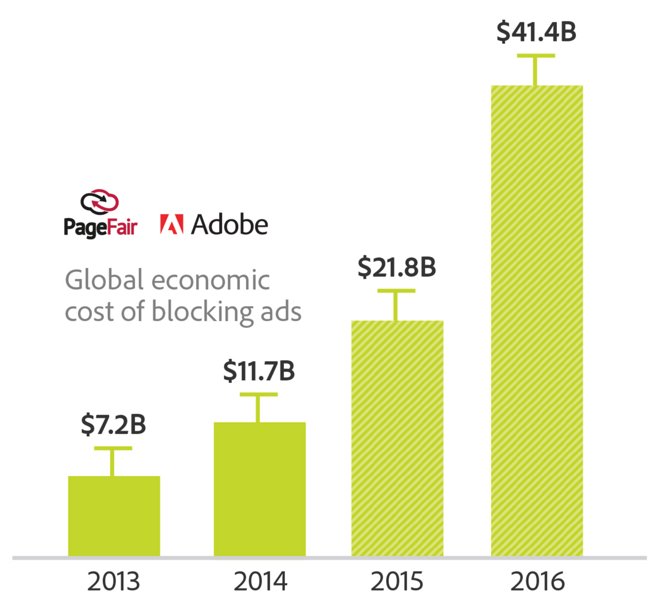With this fall's release of iOS 9, Apple will allow users to natively block content in mobile Safari for the first time --Â a change which at least one study believes will be a "game changer" in an industry that already costs publishers more than $20 billion per year.

The number of internet users blocking ads has exploded in the last year, according to a new report from PageFair and Adobe, jumping 41 percent over that period to reach nearly 200 million monthly active users worldwide. The increase is even more pronounced on the Mac, with the number of Safari users running ad blocking extensions rising 71 percent to 9 million.
Publishers will lose $21.8 billion in 2015 thanks to the practice, a figure that could nearly double to more than $41 billion by 2016.
Until now, companies that depend on web ads for revenue have been granted somewhat of a reprieve with the shift to mobile, where ad blocking is not as prevalent --Â just 1.6 percent of the blocked traffic PageFair observed in the previous quarter came from mobile devices. The firm believes that's set to change, however, with iOS 9's new content blocking abilities.
"The release of iOS 9 in the Fall of 2015 may be a game changer, as it will allow users to easily install ad blocking from the App Store," the report says.
"Mobile Safari represents 52% of the mobile browsing market (and 14% of total web browsing). With support for ad block apps in iOS 9, we expect ad blocking on mobile Safari to trend towards the levels seen in the mobile version of Firefox [16%]."
While Apple will not block ads in iOS 9 by default, the new content blockers will allow users to install extensions that do so, much like they can on safari for the Mac. In addition to ads, blockers could be used to prevent tracking scripts from running, another blow to online marketers.

